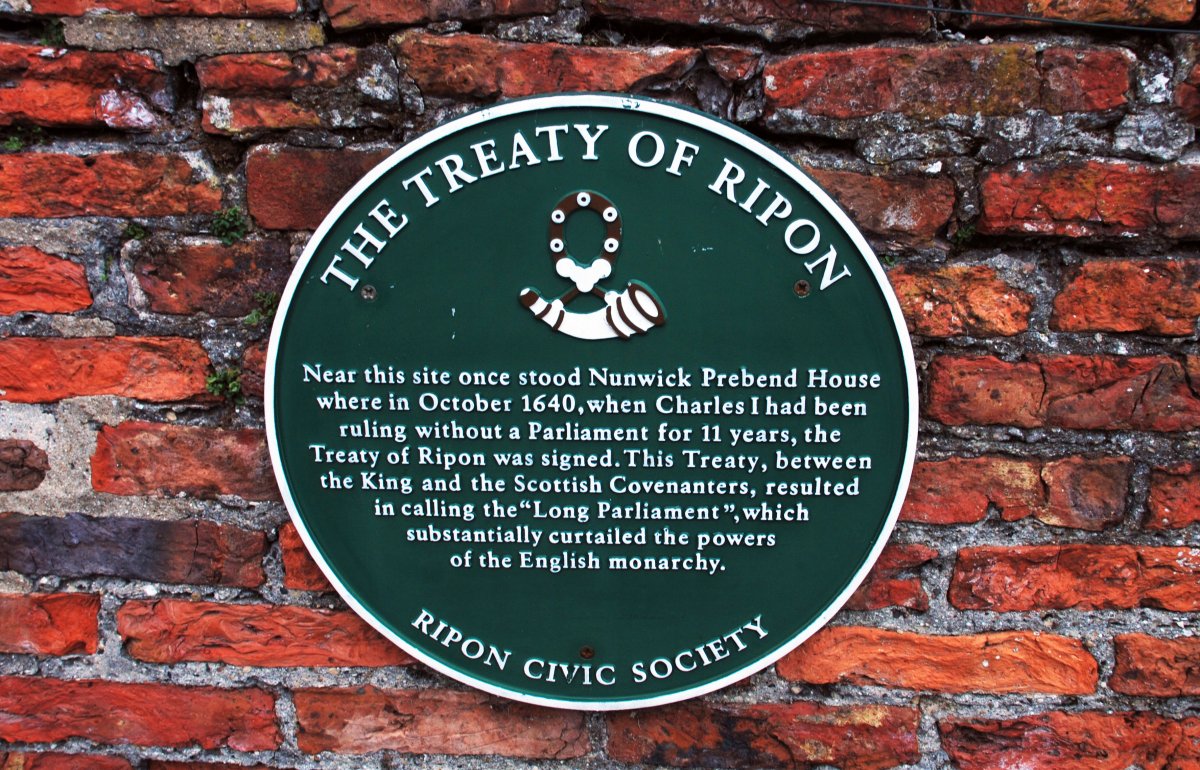The Treaty of Ripon was an agreement signed by Charles I, King of England, Scotland, and Ireland, and the Scottish Covenanters on 28 October 1640, in the aftermath of the Second Bishops' War.
The Bishops' Wars were fought by the Covenanters to oppose attempts by Charles to bring the Church of Scotland closer to the Church of England, specifically in relation to treating the king as the source of spiritual power and the introduction of bishops into government. Victory at the Battle of Newburn in August 1640 left the Scots in control of Northumberland, County Durham, and Newcastle upon Tyne.
Seeking to bypass Parliament, Charles assembled the Great Council of Peers for the first time in a century. Although the Council agreed to negotiate, they insisted Parliament approve the terms; until then, the Scots were allowed to occupy Northumberland and Durham, and were paid expenses of £850 a day. Although humiliating, Charles was forced to accept these terms.
This forced Charles to recall the Long Parliament, which he could not dissolve, ultimately leading to the First English Civil War.

 English
English  español
español  français
français  português
português  русский
русский  العربية
العربية  简体中文
简体中文 